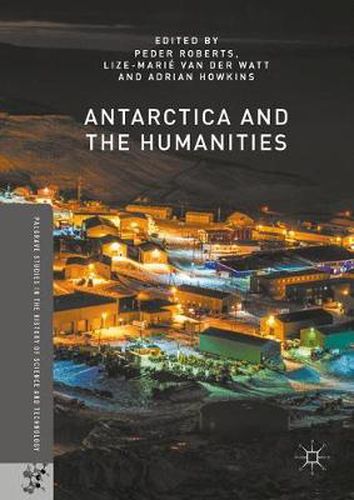Readings Newsletter
Become a Readings Member to make your shopping experience even easier.
Sign in or sign up for free!
You’re not far away from qualifying for FREE standard shipping within Australia
You’ve qualified for FREE standard shipping within Australia
The cart is loading…






This title is printed to order. This book may have been self-published. If so, we cannot guarantee the quality of the content. In the main most books will have gone through the editing process however some may not. We therefore suggest that you be aware of this before ordering this book. If in doubt check either the author or publisher’s details as we are unable to accept any returns unless they are faulty. Please contact us if you have any questions.
The continent for science is also a continent for the humanities. Despite having no indigenous human population, Antarctica has been imagined in powerful, innovative, and sometimes disturbing ways that reflect politics and culture much further north. Antarctica has become an important source of data for natural scientists working to understand global climate change. As this book shows, the tools of literary studies, history, archaeology, and more, can likewise produce important insights into the nature of the modern world and humanity more broadly.
$9.00 standard shipping within Australia
FREE standard shipping within Australia for orders over $100.00
Express & International shipping calculated at checkout
This title is printed to order. This book may have been self-published. If so, we cannot guarantee the quality of the content. In the main most books will have gone through the editing process however some may not. We therefore suggest that you be aware of this before ordering this book. If in doubt check either the author or publisher’s details as we are unable to accept any returns unless they are faulty. Please contact us if you have any questions.
The continent for science is also a continent for the humanities. Despite having no indigenous human population, Antarctica has been imagined in powerful, innovative, and sometimes disturbing ways that reflect politics and culture much further north. Antarctica has become an important source of data for natural scientists working to understand global climate change. As this book shows, the tools of literary studies, history, archaeology, and more, can likewise produce important insights into the nature of the modern world and humanity more broadly.